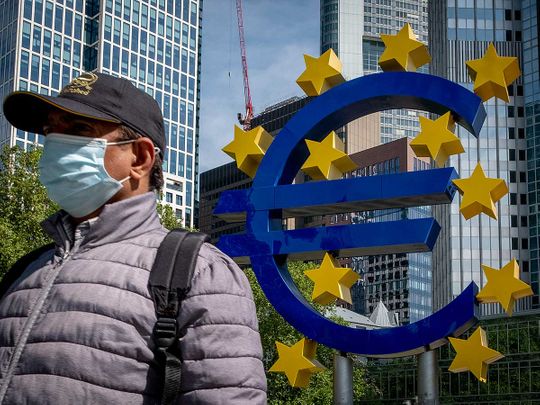
Brussels: The European Central Bank raised interest rates by more than expected, confirming that concerns about runaway inflation now trump growth considerations, even as the eurozone economy reels from the impact of Russia’s war in Ukraine.
The ECB raised its benchmark deposit rate by 50 basis points to zero percent, breaking its own guidance for a 25 basis point move as it joined global peers in jacking up borrowing costs. It was the euro zone central bank’s first rate hike for 11 years. Ending an eight-year experiment with negative interest rates, the ECB also increased its main refinancing rate to 0.50 per cent and promised further rate hikes possibly as soon as its next meeting on September 8.
“Further normalisation of interest rates will be appropriate,” the ECB said. “The front-loading today of the exit from negative interest rates allows the Governing Council to make a transition to a meeting-by-meeting approach to interest rate decisions,” the ECB said in a statement.
Expecting less
The ECB had for weeks guided markets to expect a 25 basis point increase but sources close to the discussion said 50 basis points was put in play shortly before the meeting as indicators pointed to a further deterioration of the inflation outlook. With inflation already approaching double-digit territory, it is now at risk of getting entrenched above the ECB’s 2 per cent target and any gas shortage over the coming winter is likely to push prices even higher, perpetuating rapid price growth.
The euro, which fell to a two-decade low against the dollar earlier this month, firmed around a half a percent on the ECB’s decision. The ECB also agreed to provide extra help to the 19-country currency bloc’s more indebted nations, approving a new bond purchase scheme called Transmission Protection Instrument, intended to cap the rise in their borrowing costs and limit financial fragmentation.
“The scale of TPI purchases depends on the severity of the risks facing policy transmission,” the ECB said in a statement. “The TPI will ensure that the monetary policy stance is transmitted smoothly across all euro area countries.”
As ECB rates rise, borrowing costs increase disproportionately for countries like Italy, Spain or Portugal as investors demand a bigger premium to hold their debt.








